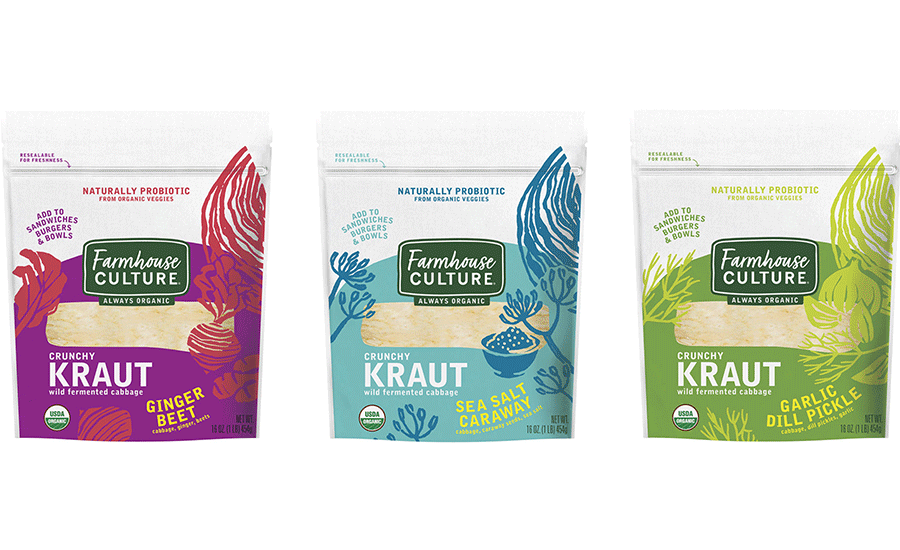Weißkohl (no idea what it is called in English, I can only find the generic "cabbage" term) is disgusting and so are all its produce like Sauerkraut or Krautsalat. That shit makes me gag and vomit. I don't know what it is about it but I absolutely despise it.
Science of Cooking
Welcome to c/cooking @ Mander.xyz!
We're focused on cooking and the science behind how it changes our food. Some chemistry, a little biology, whatever it takes to explore a critical aspect of everyday life.
Background Information:
I'm sorry Sir, but I'm going to have to ask you to turn in your German passport.
Good luck in all your future endeavours, you will be escorted to the nearest border with France.
Mixing in a bit of fresh sauerkraut into the cooked one also helps giving it back a bit of texture.
And you can eat raw sauerkraut, no cooking needed at all. This would give you the most bacteria for your guts.
And I highly recommend making your own sauerkraut. You can spice it to your liking and stored in a cool area it keeps over the whole winter.
I highly recommend making your own sauerkraut.
Maybe not if you live in a shared apartment, though.
You need a cool area (around 10°C) to store the sauerkraut, so if you don't have that, putting it in the fridge is also a possibility. And 99% of the time the container is sealed with a water ring, or mold could start growing. Therefore the smell (what I think you mean is the problem with shared apartment) isn't there all the time, only when you cook it and open the container.... which are the same times as when you use bought sauerkraut.
While I think that the lid can help a little by limiting air exchange, the purpose of these water barriers in fermentation is more to filter out larger objects and they don't hermetically seal. Exclusion of insects and airborne microbes help prevent undesired flavors. While they do create a slight bit of back-pressure, if the fermentation produces a significant amount of gas they need to let it pass through as stonewear cannot hold much pressure before it would break.
Some people have rigged up carbon filters on the output of various fermentation vessels, so if spouses or apartment neighbors would object to the aroma that approach may be worth investigating. Nobody should let smells stop them without attempting solutions!
The first question is more about what kind of kraut you're using. If it's jarred or canned, there are no live cultures in it to begin with.
If you're using non-processed kraut directly from a live culture or refrigerated vessel, then you may have some benefit, though the actual measured efficacy of probiotics in food consumption is scant at best.
They sell sauerkraut in containers other than jars and cans?
Oh, for sure. It'll change your life. Look in the refrigerator section where they keep things like pickles if you're in the US. Unsure how it's sold in other parts of the world.
They look like this.

what kind of kraut
Sour I believe
Nice try
oh shit.. I never thought of the canning. I suppose the canning process kill it. Which I suppose also means buying kimchi in jars loses the probiotics for the same reason.
The fresher kraut in the grocery store seems to be in plastic bags in the refrigerated section, but I’m not sure I can trust that either.. those bags have to be sealed just as well. OTOH, I’ve bought food in the fridge section with plastic film over it which really balloons out when close to expiry, apparently due to gas emitted by the bacteria. So maybe they aren’t killing the bacteria in those cases.
There are brands that specifically state "live and active cultures" on the main part of the label
edit: usually these will be in the refrigerated section. If it is a fermented product and it is being refrigerated at the store it is likely live.
Kimchi in jars is different because it's usually refrigerated from the start, and the fermentation is slower than kraut which usually starts at room temp, and finishes refrigerated. You can almost always tell if it's live by just tasting it. A live culture will have a bit of a carbonated kind of fizz in the bite.
If it's in the airlock bags or plastic vessels, it's assumed that it's live. Like Farmhouse Culture, Sinto, or Wildbrine.
Given that those bacteria have to survive your body temperature heating it up to / cooking it at 37°C should cause no issues for them. Sadly I can't provide any information beyond that.